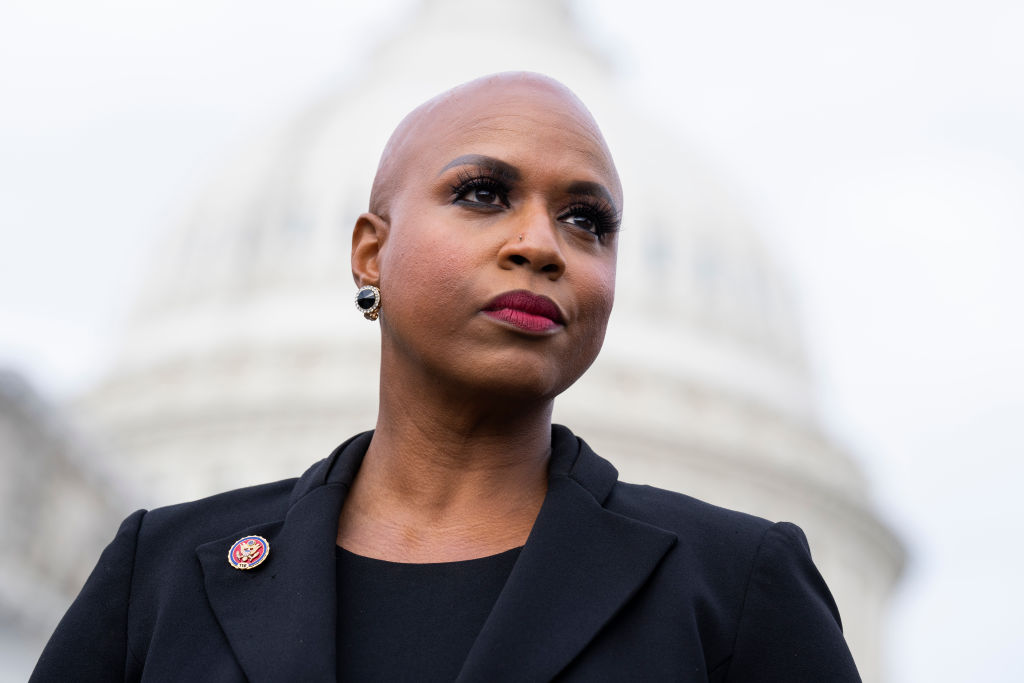
December 8, 2023
U.S. Rep. Ayanna Pressley Joins Other Lawmakers To Present Bill Allowing Prisoners The Right To Vote
The 49-year-old Ohio native spoke of her father Martin Pressley's struggle with drug addiction that often led to prison time.
Democratic Rep. Ayanna Pressley and Sen. Peter Welch presented a new bill on Dec. 6 that, if passed, would grant the right to vote to those formerly incarcerated and those currently behind bars. The proposed legislation aligns with decisions made by several states to loosen restrictions on voting for those currently serving sentences, Reuters reports.
With a Republican-controlled House of Representatives and a Democratic majority in the Senate, the bill could have a hard time passing through Congress; however, Pressley and Welch believe it is a crucial step to further strengthening the nation’s democracy.
“The right to vote is sacred in America and it’s essential to citizenship, and all citizens deserve a voice in our democracy,” Pressley said. In Vermont, where Welch presides, voting rights are not stripped from those imprisoned; only Washington, D.C., and Maine have set similar precedents. “There is resistance. We know that,” Welch said.
For Pressley, the new bill has more personal ties. The 49-year-old Ohio native spoke of her father, Martin Pressley’s struggle with drug addiction that often led to prison time. After overcoming his substance abuse issues, the senior Pressley became both an author and professor, proving both rehabilitation and redemption to be possible.
Across the country, the decision to revoke voting rights from those previously or currently incarcerated, whether temporarily or permanently, has been a state-by-state choice. In 23 states, felons are only barred from voting while imprisoned and have their rights restored automatically upon release, according to the National Conference of State Legislatures. However, in some states, voting rights remain suspended even after a felon’s sentence is completed. It may require an additional waiting period, a governor’s pardon, or additional actions to be determined by the state.
The proposed bill would have a disproportionate effect on Black communities as Black Americans are still imprisoned five times more than white Americans, according to the Sentencing Project.
RELATED CONTENT: Tennessee’s Stringent Voting Laws Disenfranchise 21% Of Black Voters, Report